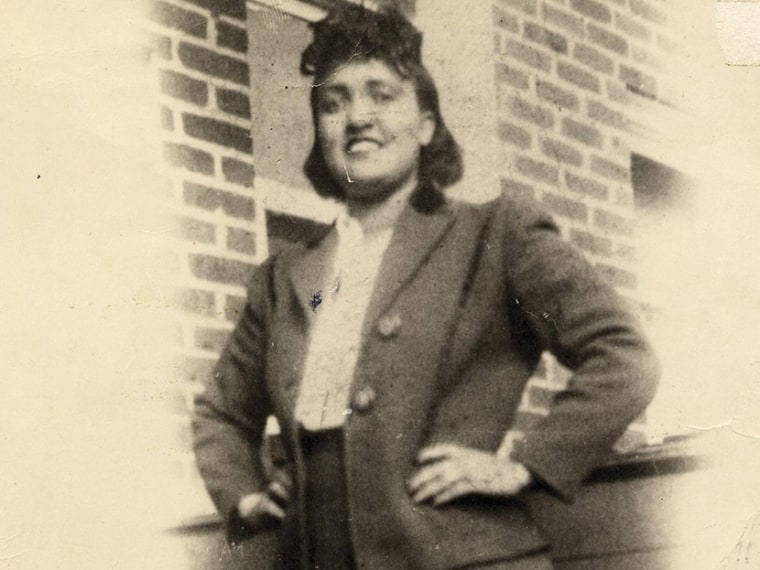Information about the most famous and valuable human cells in the history of science is about to become a little harder for researchers to get.
The National Institutes of Health announced on Wednesday that it had reached an agreement with the family of the late Henrietta Lacks, the African-American woman whose cancer cells scientists took without her permission 62 years ago and used to create an endlessly replicating cell line now used in countless labs worldwide.
Under the unprecedented pact, a grandson and a great-granddaughter of Lacks, whose story was told in the 2010 best-selling book The Immortal Life of Henrietta Lacks, will help decide which biomedical researchers will have access to the complete genome data in cells derived from her cervical tumor, called HeLa cells. That data - which can be used to infer medical and other information about Lacks' family - will be stored in a secure, NIH-controlled database.
"This is a novel and historic agreement," NIH director Dr Francis Collins told reporters, one that will "protect the family's interest and also further their commitment to biomedical research." Collins and bioethicist Kathy Hudson, NIH deputy director for science, outreach, and policy, wrote about the agreement in an essay in Nature published on Wednesday.
NIH's decision to control access to the HeLa genome was prompted by a recent scientific paper that many geneticists and bioethicists viewed as one more insult to Lacks and her family.
In February 1951, physicians at Johns Hopkins Hospital in Baltimore took a biopsy of Lacks' aggressive cervical cancer when the tobacco farmer and mother of five was 31. The tissue sample, taken without her knowledge, gave rise to the first line of human cells that could grow endlessly in lab dishes.
Lacks died eight months later, decades before federal law prohibited taking biological samples without consent. Her cells, however, seem immortal, and have been used for both basic biomedical research and the development of polio and other vaccines, cancer therapies, in vitro fertilization techniques, and drugs for herpes, leukemia, influenza, hemophilia and Parkinson's disease. Although HeLa cells came from a tumor, that does not prevent them from being used to study some normal processes.
For decades her children did not know that her cells - the subject of more than 74,000 scientific papers - were being used. Many were profoundly disturbed when they learned that part of the mother who was taken from them as a young woman lived on in labs that did not even know that "HeLa" stood for a real person.
Rebecca Skloot's 2010 book about the origin of HeLa cells began to right that wrong. But the family was "shocked and disappointed" last March, said granddaughter Jeri Lacks Whye, when researchers in Germany published a paper that revealed the full HeLa genome. The European Molecular Biology Laboratory, which posted the HeLa genome sequence in an open-access database, said at the time: "We cannot infer anything about Henrietta Lacks's genome, or of her descendants, from the data generated in this study."
In fact, with readily available online tools that translate sequence data, an expert could infer what disease genes and other DNA Lacks' descendants carry.
The information "was out there for anyone to view with a click of a button," Whye said. "It seemed like history was repeating itself" as scientists exploited HeLa cells with no consideration for Henrietta's family.
Skloot brought the paper to the attention of the family and the NIH's Collins. When the family asked the German researchers to remove the DNA data from the public database where they had posted it, they did so. It had been posted for several days.
The episode prompted NIH, encouraged by Skloot, to meet with the Lacks family. The result is the new agreement, which Collins called "a path forward that respects (the family's) wishes and allows science to progress."
